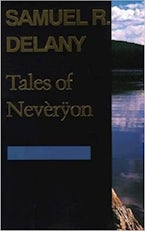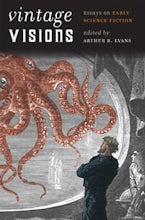- Home
- fiction
- social science
- Tales of Nevèrÿon

Tales of Nevèrÿon
Sales Date: 1993-11-29
264 Pages, 5.37 x 8.50 in
A novel of myth and literacy about a long-ago land on the brink of civilization. Vol 1
In his four-volume series Return to Nevèrÿon, Hugo and Nebula award-winner Samuel R. Delany appropriated the conceits of sword-and-sorcery fantasy to explore his characteristic themes of language, power, gender, and the nature of civilization. Wesleyan University Press has reissued the long-unavailable Nevèrÿonvolumes in trade paperback.
The eleven stories, novellas, and novels in Return to Nevèrÿon's four volumes chronicle a long-ago land on civilization's brink, perhaps in Asia or Africa, or even on the Mediterranean. Taken slave in childhood, Gorgik gains his freedom, leads a slave revolt, and becomes a minister of state, finally abolishing slavery. Ironically, however, he is sexually aroused by the iron slave collars of servitude. Does this contaminate his mission — or intensify it? Presumably elaborated from an ancient text of unknown geographical origin, the stories are sunk in translators' and commentators' introductions and appendices, forming a richly comic frame.
Samuel R. Delany's many prizes include the Hugo Award, the Nebula Award, and the William Whitehead Memorial Award for a lifetime's contribution to gay and lesbian literature. Wesleyan has published both his fiction and nonfiction, including Atlantis: three tales (1995), Silent Interviews: On Language, Race, Sex, Science Fiction, and Some Comics (1994), Longer Views: Extended Essays (1996), and Shorter Views: Queer Thoughts & the Politics of the Paraliterary. The press has also reissued his classic science fiction novels Dhalgren (1996), Trouble on Triton (1996, originally published as Triton), and The Einstein Intersection (1998).
"The tales of Nevèrÿon are postmodern sword-and-sorcery . . . Delany subverts the formulaic elements of sword-and-sorcery and around their empty husks constructs self-conscious meta-fictions about social and sexual behavior, the play of language and power, and –above all –the possibilities and limitations of narrative. Immensely sophisticated as literature . . . eminently readable and gorgeously entertaining."
~The Washington Post Book World
""Complex and carefully crafted . . . his language is lovely, often approaching the poetic.""
~Publishers Weekly
""This is fantasy that challenges the intellect . . . semiotic sword and sorcery, a very high level of literary gamesmanship. It's as if Umberto Eco had written about Conan the Barbarian.""
~USA Today
""The tales of Nevèrÿon are postmodern sword-and-sorcery . . . Delany subverts the formulaic elements of sword-and-sorcery and around their empty husks constructs self-conscious meta-fictions about social and sexual behavior, the play of language and power, and – above all – the possibilities and limitations of narrative. Immensely sophisticated as literature . . . eminently readable and gorgeously entertaining.""
~The Washington Post Book World
""Delany continues to surprise and delight . . . [his] playfulness is the kind that involves you in the flow, forces you to see details in a larger context, yet never lets you forget that what you are reading is, after all, nothing but artifice, a series of signs.""
~The New York Times Book Review
"The Nevèrÿon series is a major and unclassifiable achievement in contemporary American literature."
~Fredric R. Jameson
"Delany's work exists on a kind of borderline — between theory and literary practice, between canonical and popular culture, between academic and nonacademic culture — a borderline familiar to feminist theory and cultural critique. The Nevèrÿon series is one of the most sustained meditations we have on the complex intersections of sexuality, race, and subjectivity in contemporary cultures.""
~Constance Penley
"I consider Delany not only one of the most important SF writers of the present generation, but a fascinating writer in general who has invented a new style."
~Umberto Eco










